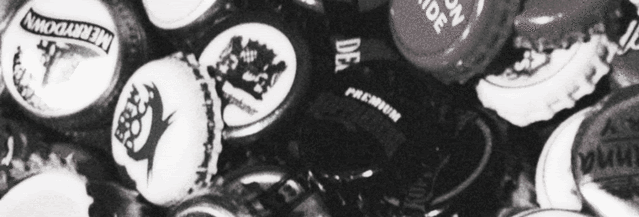type: Pilsner
origin: Czech Republic
ABV: 4.4%
location: Biergarten
served: 500ml bottle to a glass
The beer from which all Pilsners get their name, Urquell was first brewed in 1842 in Plzeň, in what is now the Czech Republic. Of course, 'Urquell' is German for 'primary source', which makes it sound a bit like spring water. The Czech name is 'Prazdroj', but SABMiller probably think that'd be a bit too difficult for the punters in the UK to pronounce - especially after they've had a few - so it gets the German translation.
Since I've mentioned the brewery's parent company, this seems like a good opportunity to reflect on the brand identity and quality - and Pilsner Urquell has an enviable position. Few brewers can claim to have invented an entire style of beer, especially one so broadly accepted as Pilsner, so it immediately has a feeling of heritage and tradition. How much tradition is left after Miller's acquisition and modernisation is anyone's guess, but the corporate machine has either kept its distance or done a good job of concealing its meddlesome practices behind the premium branding. Urquell does deserve a 'premium' tag though, as it feels like a good quality product, and not just some corporate facsimile of one.
Having been named in the 19th century, the title probably wasn't the output of some business-school board meeting, nor a focus group. The name is quite well chosen though, as apart from the obvious meaning of 'primary source' as the beer that all Pilsner-styles are formed after, the spring water-sounding tag allows me to work in a nice link to the water used in the brewing.
Plzeň has really 'soft' water. For those unfamiliar with the term, it basically means that the water is very pure, and has less minerals in it than hard water. Now, companies trying to sell you bottled water may promote the fact that their product has lots of minerals in it, but while lots of minerals may be good for you if you're jogging or working in an office environment, lots of minerals in the water may not be great for brewing beer. 1
So, the local water is pretty celebrated, and the region is also notable for Saaz hops, which don't impart a lot of bitterness to the brew.
Smell: a slightly citrus aroma, balanced but not overly strong. a soft and bright, but largely unobtrusive smell, almost certainly due to the water and hops. 2/4
Colour: Urquell has a fairly ideal pale lager colour... although you'd expect it to, being the original that all the others have copied. With a golden sort of hue, it looks inviting enough, and not too artificial. 3/4
Taste: it's sharp and very hoppy - perhaps over-hopped for some - but not too bitter. The citrus smell carries over into a fruity taste, and the beer has a decent amount of body. Quite a lot of aftertaste, too. 3/4
Overall: a refreshing, drinkable beer, which is different enough to stand out from the crowd, but not so different that you need to go to a really snobby pub just to find it. 8/12
1. or maybe it is, depending on the style, and if you're a brewer based in Burton-on-Trent or not.
more info: www.pilsnerurquell.com
